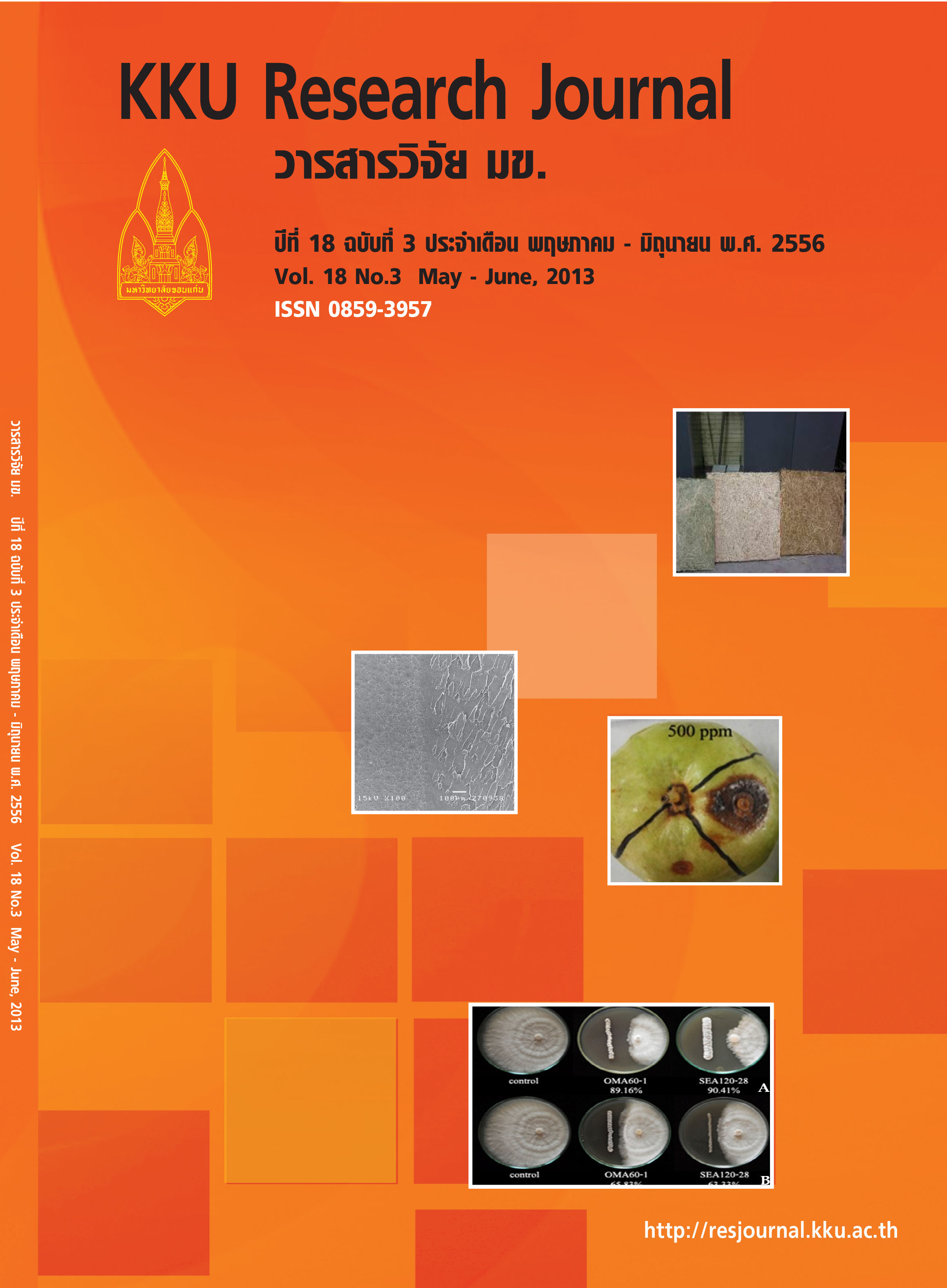Evaluation of fungicide and actinomycete efficiency in controlling Nalanthamala psidii, causal agent of guava wilt disease
Main Article Content
Abstract
The efficiency of fungicides in controlling Nalanthamala psidii, a causal agent of guava wilt disease, was evaluated in vitro and in vivo bioassays on guava fruits conditions. Plate method assay experiment revealed that the amendment of the tested systemic fungicides on agar affected fungal mycelial growth, i.e. carbendazim and benomyl showed 100% inhibition at concentration of 8 ppm and 10 ppm, respectively, whereas Bordeaux mixture and captan at concentration of 1500 ppm showed 42.74% and 38.37% inhibition, respectively. In vivo bioassays on guava fruits indicated that sprayed benomyl and carbendazim on fruits caused significant decrement (p ? 0.01) of diseases incidences than Bordeaux mixture and captan treatments. In vitro antifungal activities by bioassays of the six isolated soil actinomycetes were evaluated. The antagonistic potencial of the actinomycetes on GYM (glucose-yeast-malt) agar inhibited 100% fungal mycelial growth when incubated for seven-day prior to the pathogen inoculated. The selected actinomycetes strains, SEA120-28 and OMA60-1, were re-examined for their effective activities. The both actinomycetes were incubated on GYM agar for three days before or simultaneously inoculation of the pathogen. It showed that both strains inhibited mycelial growth of 90.41, 89.16, 65.85 and 63.33%, respectively.
Article Details
How to Cite
Suwan, N., Thavornwong, S., & Nalumpang, S. (2017). Evaluation of fungicide and actinomycete efficiency in controlling Nalanthamala psidii, causal agent of guava wilt disease. Asia-Pacific Journal of Science and Technology, 18(3), 391–403. retrieved from https://so01.tci-thaijo.org/index.php/APST/article/view/82862
Section
Research Articles


